The Revenant |Big-Name Star: Leonardo DiCaprio
Truth can be stranger than fiction, but sometimes it’s just simply more boring than a made-up tale. Such is the case with several Hollywood movies that lured audiences with the familiar descriptor, “The following is based on a true story.”
In quite a few instances of movie magic, that claim has proved to be baseless. Here are five films that presented events as factual, when in fact they were borne of someone’s vivid imagination and their ability to weave a tale that seems real even when it’s not.
In common parlance, it’s called making stuff up.
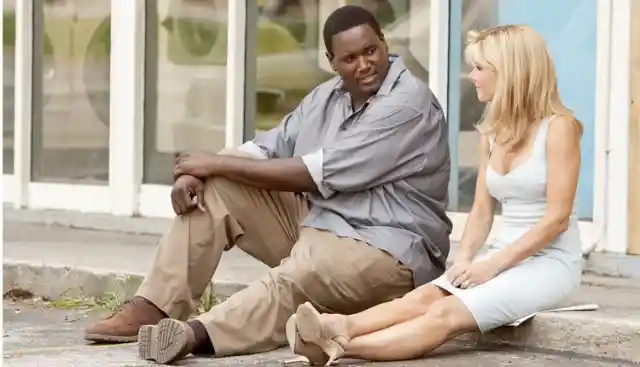

The Oscar-winning epic Western The Revenant tells the story of a frontiersman, Hugh Glass (Leonardo DiCaprio) consumed by revenge after John Fitzgerald (Tom Hardy) kills his son and leaves Glass himself for dead following a bear mauling.
While fur trapper Hugh Glass is indeed real, his adventures as depicted in the film are entirely a work of fiction. Yes, he was attacked by a bear and left to die, but the mind-blowing revenge crusade never took place. He searched for Fitzgerald for a bit, but then gave up and moved on to other things. Oh – and one other thing: Glass never had a son who was murdered; in fact, he ever had any children to speak of.
Flight | Big-Name Star: Denzel Washington
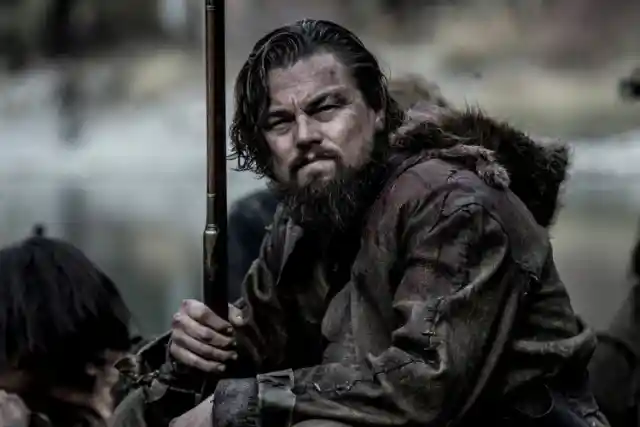
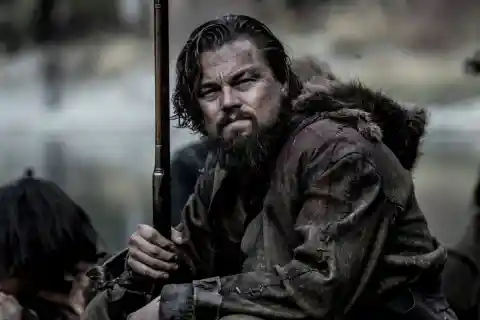
In 2012, Robert Zemeckis gave us Flight, a bold tale of an alcoholic pilot, Whip Whitaker (Denzel Washington), who unbelievably crash-lands a malfunctioning plane. There’s a reason the events were so unbelievable: they weren’t true.
Writer John Gatins did indeed use the 2000 crash of Alaska Airlines Flight 261 as the basis for the story, but only two elements of that actual crash made it into the film: The plane malfunctions as the result of a faulty screw, and the aircraft flies inverted for a period of time. The real story: The plane’s inversion kept the aircraft in the air for mere moments, after which it crashed, killing all 88 people onboard. In the movie Flight, just six passengers on the flight died. And the added drama about Whitaker’s sobriety? Not a drop of truth in it.
Fargo | Big-Name Stars: Frances McDormand, William H. Macy, Steve Buscemi
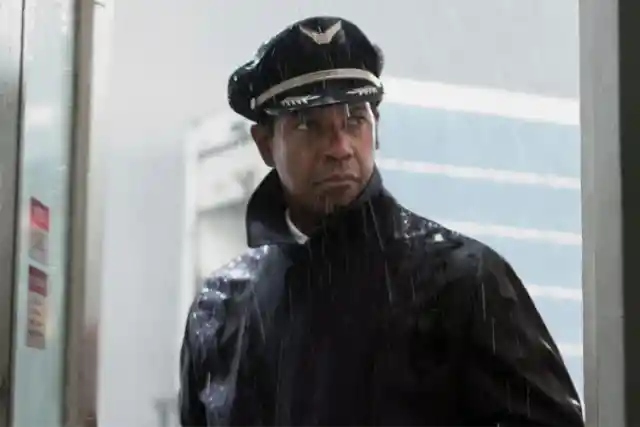
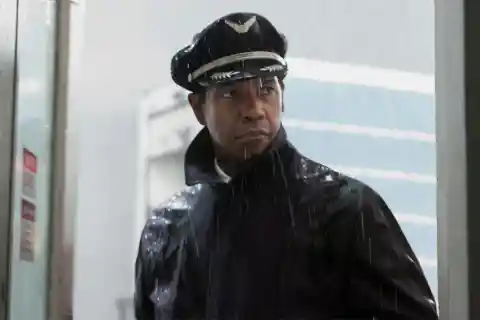
Maybe it was the movie’s opening title card that gave audiences and movie critics pause: “This is a true story. The events depicted in this film took place in Minnesota in 1987. At the request of the survivors, the names have been changed. Out of respect for the dead, the rest has been told exactly as it occurred.”
Written, produced, and directed by Joel and Ethan Coen, the film raised more than a few eyes eyebrows as it seemed far-fetched that this neo-noir yarn was factual. Joel Coen explained that the characterizations and the story had been fleshed out to beef up the cinematic appeal. His justification was based on the premise that, “If an audience believes that something’s based on a real event, it gives you permission to do things they might otherwise not accept.” Apparently audiences did believe the movie’s premise: After Fargo’s release, overzealous fans descended on Brainerd, Minnesota, searching for ransom cash buried in the snow, as depicted in the movie.
Hotel Rwanda | Big-Name Star: Don Cheadle
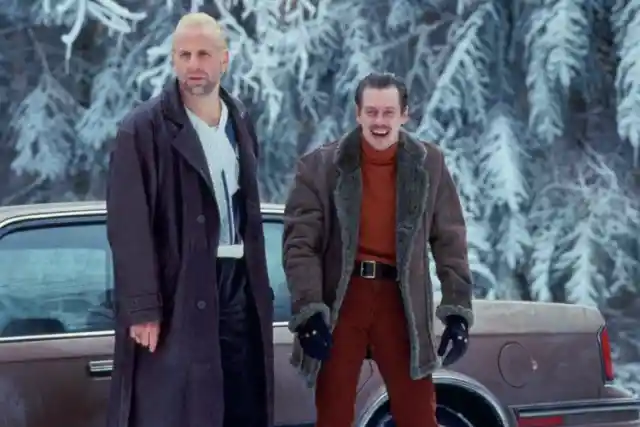
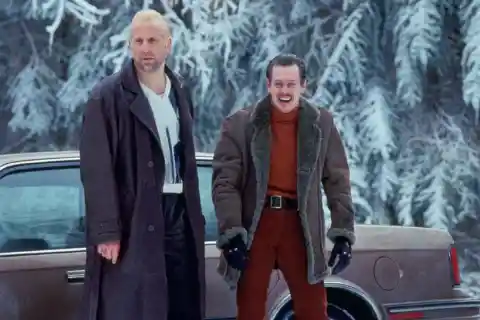
Sad but true: In 1994, Rwanda was the site of an atrocious genocide that left a permanent mark on the country’s history. In contrast, the movie Hotel Rwanda tells an imagined story that bears little resemblance to the actual atrocities that took place at that time.
In the film, hotelier Paul Rusesabagina (Don Cheadle) shelters his family as well as 1,000 refugees inside his hotel during the genocide, ultimately saving all of their lives. Years after the film’s release, however, several books were published that disputed the authenticity of the story and Rusesabagina’s remarkable heroism. Accounts from more than 70 individuals who stayed in Rusesabagina’s hotel during the time of the genocide contend that he extorted money from the refugees, distributed a list of refugees’ names and hotel room numbers to external parties, thereby putting them in danger, and cut off hotel phone communications. In 2014, several UN peacekeeping members heavily downplayed Rusesabagina’s role in saving lives. Rusesabagina was recently convicted of terrorism charges and was given a 25-year prison sentence.
The Blind Side | Big-Name Star: Sandra Bullock
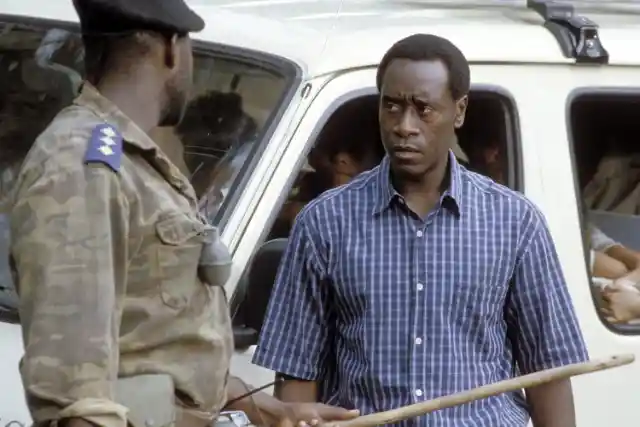
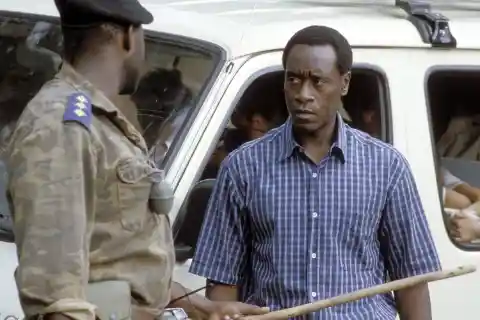
In 2009, The Blind Side rocked the box office and netted Sandra Bullock a Best Actress Oscar for her turn as Leigh Anne Tuohy, a well-to-do white woman who lovingly adopts an impoverished Black youngster, Michael Oher (Quinton Aaron), who goes on to become a successful NFL offensive tackle. But in terms of truth, the movie veers way out of bounds.
Yes, Michael Oher was adopted by the Tuohys, and he carved out a successful football career, but the sugary sentimentality of the movie is meant to tug at the heartstrings, not convey reality. Oher’s adoption by the Tuohys was far more gradual and significantly less dramatic in real life as compared to the adoption process depicted in the film. Another untruth: Oher was not totally clueless about football until Leigh Anne weighed in and taught him the basics with soothing, well-intentioned patience. According to Oher, “I could not figure out why the director chose to show me as someone who had to be taught the game of football. Whether it was S.J. moving around ketchup bottles or Leigh Anne explaining to me what blocking is about, I watched those scenes thinking, ‘No, that’s not me at all! I’ve been studying – really studying – the game since I was a kid!’” Score one for telling the truth.